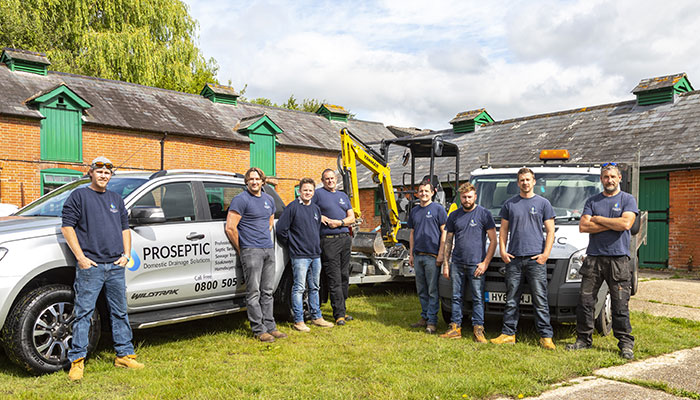If you’re purchasing a property with an older septic tank system, it’s important to understand what you’re taking on. For many UK buyers, this will be a new experience – particularly if you’ve only ever lived in houses connected to the main sewage network. Before committing, it’s essential to know what to watch out for to avoid the risk of hidden costs.
Red flags to look for with older septic systems
While a septic system should have a lifespan of many years, particularly if properly maintained, they are finite. And if the one you’re buying is reaching the end of its serviceable time, you may be in line for significant spending. Older septic tanks may develop structural issues, including cracks, leaks and compromised seals.
These can often cause telltale signs, such as:
- Unpleasant sewage odours outside the property
- Damp ground or pooling water near the tank or drainage field
- Unusually lush, green grass over the drainage field area
- Slow-draining toilets or sinks inside the property
Any of these could indicate the need for a replacement system – an expense you don’t want after buying a new home. They could even result in pollution of nearby watercourses, which might incur costly Environment Agency involvement. And even if you see no visible signs, some older systems may not comply with stringent environmental regulations currently in place.
What do I need to ask the seller?
It might seem an uncomfortable conversation – but you shouldn’t be shy about asking for specific information, including:
- How old is the system?
- How often was it emptied, inspected or maintained – and are there records or invoices?
- Has the system ever needed repairing?
- Where exactly are the tank and drainage field located on the property?
- Does it comply with current regulations?
- Have they experienced issues with unpleasant odours or slow drainage?
Although such questions may appear exhaustive, they certainly beat shelling out thousands for unforeseen costs.
Hidden costs to consider
The unexpected expenses that could emerge as a result of unaddressed older septic tank issues might include:
- Property and garden damage – especially if the system backs up and damages floors or walls
- Emergency pumping – a sudden failure will cost significantly more than scheduled maintenance
- Legal compliance – if the system contravenes current regulations, you may have to pay for urgent upgrades
- Total replacement – a complete system swap can cost several thousand pounds
- Reduced property value – a failure to tackle a problematic system may significantly affect your resale potential
How can I protect myself?
If you can’t establish whether a property adheres to the General Binding Rules, request a specific septic system inspection. Specify, within your conditional offer, that this should be separate from the general property survey and conducted by a qualified professional.And it should include a detailed assessment of condition, drainage field performance and compliance.
If you’re a homebuyer (or seller) and want to talk to someone about how to safeguard yourself, please get in touch.
